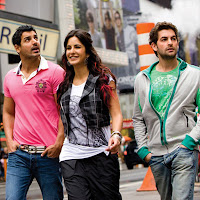It is just me, or is seriousness becoming taboo? We live in a time when a bland and thoughtless “popular culture” sensibility has attained maximum saturation. It’s a total victory for the most pernicious kind of postmodern position, and I fear it’s taking the edge off our faculties. Things today are too sacred for seriousness. One can’t really touch a topic of conversation – Bollywood, the News, our lives – without being told to check our seriousness in at the door.
Zizek had obviously gotten the memo. At the Stein Auditorium earlier this week, Zizek said a few interesting things, but mostly he said uninteresting things that sounded like he was reading off his Twitter account – “I hate Mother Teresa”, “I love Kant”, “I hate Jaws”. His one-liners had about as much grace and finish as large footballs kicked in the audience’s face. Zizek can be an entertainer, but that Zizek (yes, the Other One) had taken the day off, and on Tuesday night at Stein he had the presence of a drunk uncle at a large family dinner, not of an intellectual superstar at a public lecture. Because if you think about it, why does he hate Jaws? He never really told us, but we can take solace in knowing that he doesn’t think the shark represents Socialism. I was subjected to ninety minutes (I can assure you it felt longer) of extempore without a moment of illumination, but to say “What the Fuck?” is to be asked in return “Why so serious?”. Smokes and mirrors aplenty, I can report, but sense and meaning, I fear, had all but vaporized.
The decline of seriousness is a global calamity. Priyanka Chopra, who otherwise strikes me as a woman of not mean intelligence, was on the radio this evening promoting her new film (and I apologize for the title) Pyaar Impossible. “Why should people watch this film?” she was asked. “Well,” she replied, “It’s just a light, sweet film that you can take your girlfriend to with popcorn and without thinking too much. You’ll come out feeling really good about yourself”. For a second I felt enraged at the treasonous abandonment of sentences for non-sequiturs (and when actors describe their films as “light” or “sweet”, you can be sure you’re in for a world of pain). But Piggy Chops, I must admit, makes a frighteningly accurate prediction. Not being forced to think is one of the great concessions movies are making for us today, and of course that helps us feel good about ourselves. Because if you did think about it, you’d realize you’d paid a 150 bucks for tripe, and then you wouldn’t feel so good about yourself, would you?
The movies are being sustained as a popular establishment now by jettisoning seriousness. The real catastrophe in all of this is that ’seriousness’ has become an Ahab to ‘entertainment’, a middle-aged bore who doesn’t just sulk in a corner but kills the party for everyone. What if I were to get serious about, say, 3 Idiots? I would see a terribly bloated vanity project with a thoroughly unexciting and uncontroversial moral center (“Suicide is bad”). But no one wants to get serious about it, because that’s unsportsmanlike. I suppose it’s our misfortune that when someone does decide to blow the whistle, that someone has to be Sagarika Ghose. Her blog-post serves to discredit the thoughtful as, well, idiots, who cannot only not write on cinema or culture without sounding like royal bores, but also as inarticulate and incompetent fools. With friends like her, seriousness needs no enemies.
It has long been standard practice for snobs to dismiss the popular as an inhospitable environment for seriousness, but must the popular so readily comply?






















